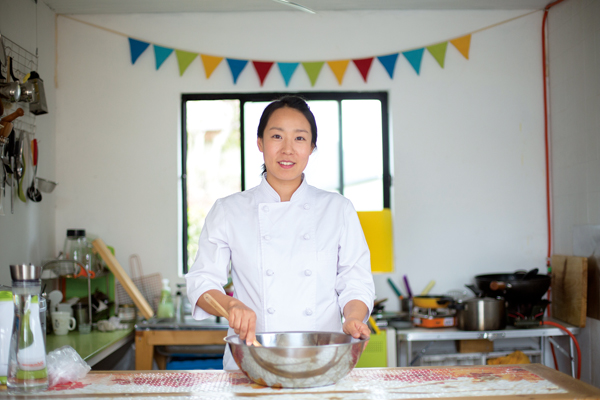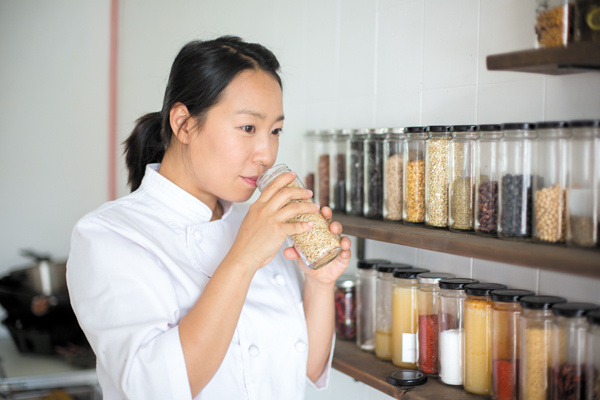| |
 |
|
| ▲ Park Soyeon wants to reconnect children with food and she does this by telling engaging stories about its production. Photo courtesy World Culture Open |
Entrepreneur Park Soyeon wants people to have more meaningful experiences with their food, something increasingly difficult in our fast society.
Through her business, Happy Cooking Farmer, she not only sells homemade jams and breads, but also provides educational workshops and hands-on activities for the community.
“Experience is more meaningful when it follows the heart... I want people to know the story of the farmer and the story of the land, not just eat and finish. I cook to convey these stories.” says Park.
Park has not always been the enlightened campaigner she is now; her epiphany came after an encounter with a local organic farmer.
“After learning about their role in caring for the land, I was able to cherish not just the taste of food, but the value of life,” she said.
“I came to understand that one of the reasons we have so many problems in food production is because the farmers who produce the food don’t get any recognition at all.”
She says that it is a “national shame” that farmers are not valued for their true worth, and subsequently children often look upon the older generation working the land with shame.
“We don’t have a bright future for agriculture. Among the children of farmers, none of them wants to be a farmer. If they saw their parents as happy figures, they probably would want to be.”
To brighten this gloomy outlook, Park educates children and adults about the journey of food from the field to the plate in special cooking classes.
She also sells her own homemade products that are like characters in a story reawakening people to the wider ecosystem and local heritage.
| |
 |
|
| ▲ There is a story behind all of the food Park makes. Photo courtesy World Culture Open |
“I became a cook to tell stories. I consider myself a storyteller rather than a chef,” she says.
Park’s skill as a storyteller is helping to engage local children in the unfashionable world of food production through various donation-funded projects. One particularly popular activity is making horse-manure cookies.
“The kids learn about the principles of the ecological cycle such as ‘The horse eats grass and then poops it out. Then the bugs break that down back into the earth, and we eventually use it again in the cookies.’ “
“While stirring the cookie mix, the children can imagine, feel. and think about farmers and the earth. They are then able to see that eating is more than just eating,” she says.
Park wants to take this yarn-spinning to its logical conclusion; she dreams of writing a children’s book to celebrate farmers and local food heritage. She warns, however, that parents have the ultimate responsibility.
“Passing down family recipes is a huge part of our lives [but] the food ecosystem has been ruined. Time and convenience are prioritized over health, and variety has been lost,” she said.
She says this impoverishment is exemplified in the mere four varieties of apple we eat, down from dozens, and the fact consumers only recognize one potato taste, when each variety is unique. Such standardization is to the detriment of local culture, Park adds.
“Our indigenous stories are disappearing. Gasi-ri is famous for its dried daikon because of its strong winds, but it is hard to find naturally-dried daikon anymore. It is all manufactured.”
Her philosophy of harmonizing heritage and innovation is summed up in her signature product: mandarin peel jam.
“The birth of mandarin peel jam is unique. In winter in Jeju, mandarin peel is often piled up after being left unsold. I was peeling it for a farmer and it was so hard. So, I decided to make the jam together with the peel. I tried to make it for those people who don’t normally eat jam.”
The result is a rich, tangy and chewy jam that has more heart than other jars.
“This kind of work is essential to connect the next generation with their traditions. My aim is to ensure people have a happy life through food, culture and communication with each other,” said Park. |





















